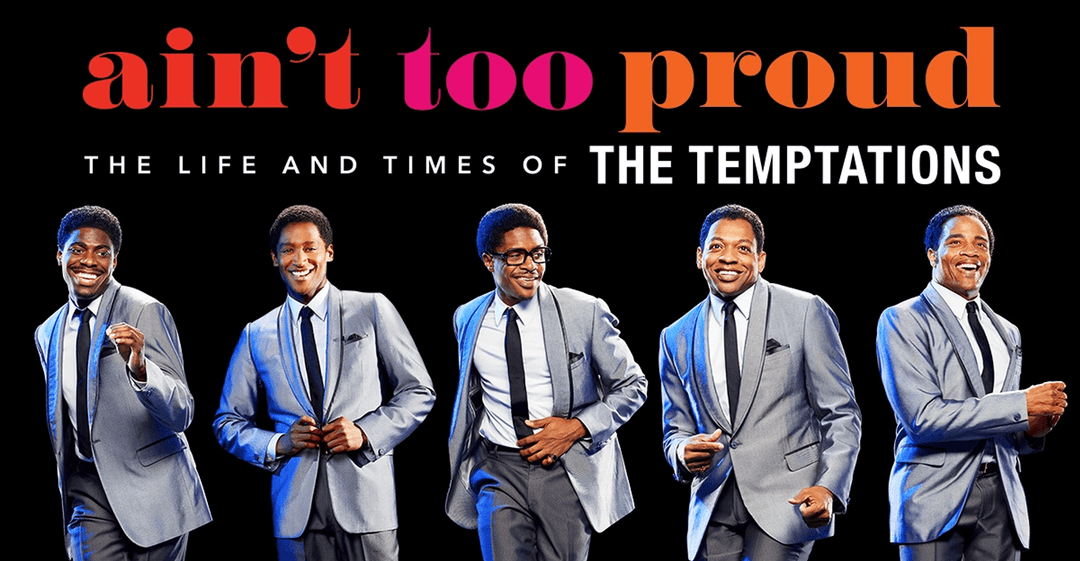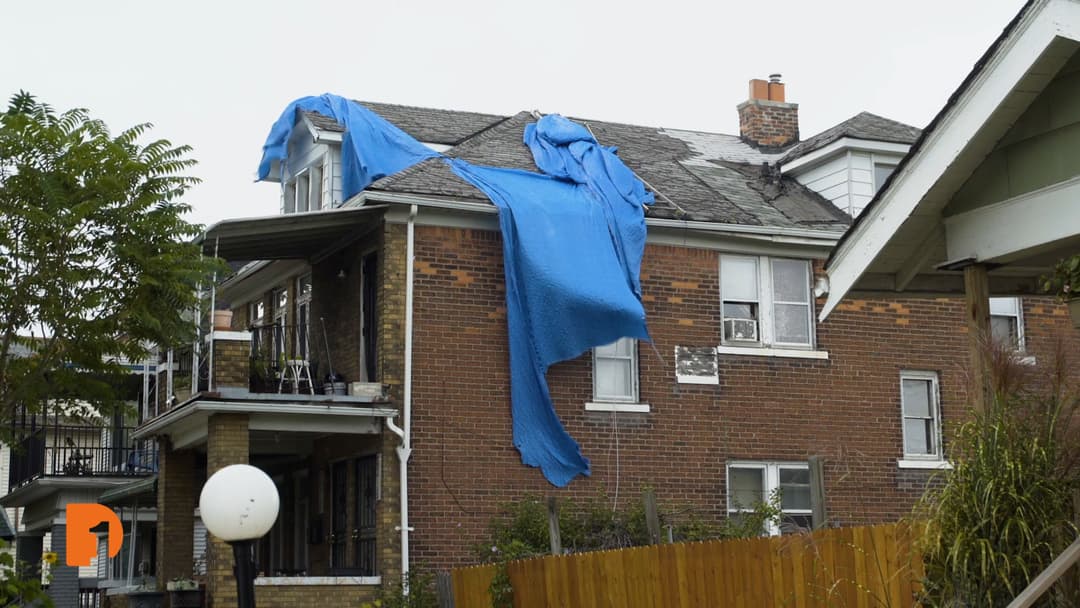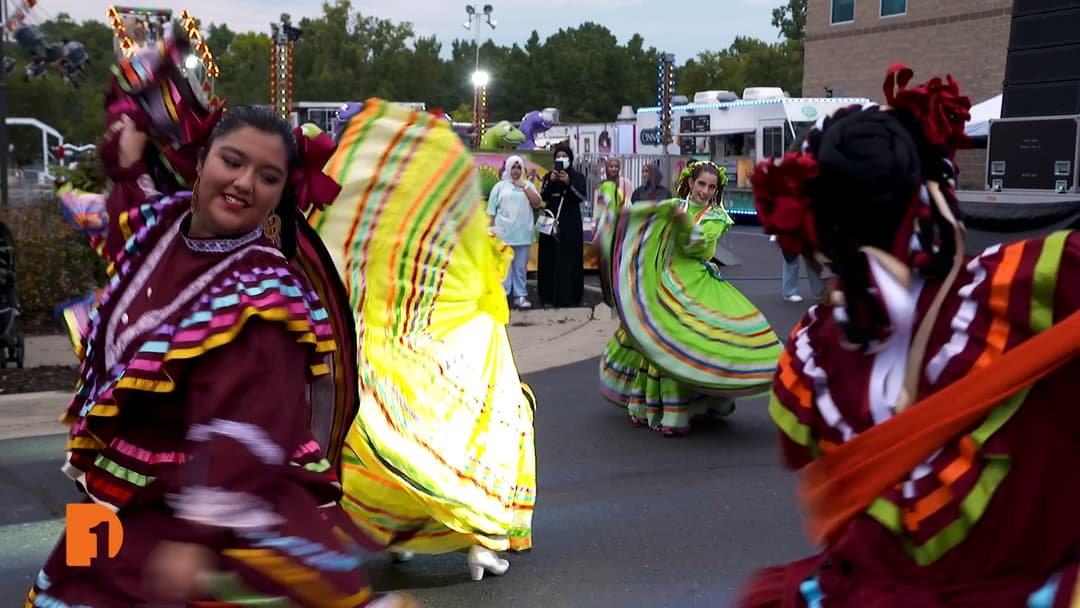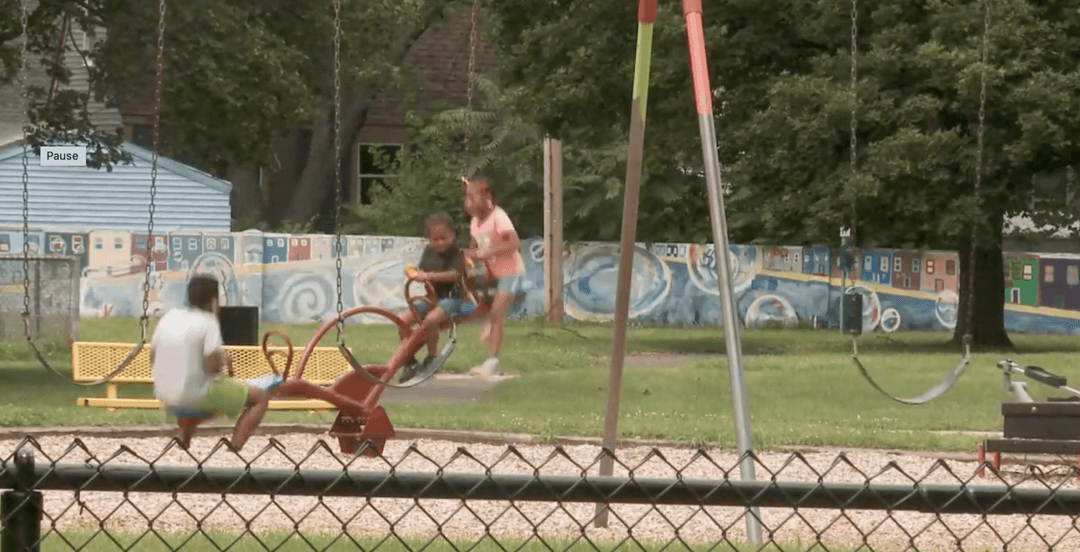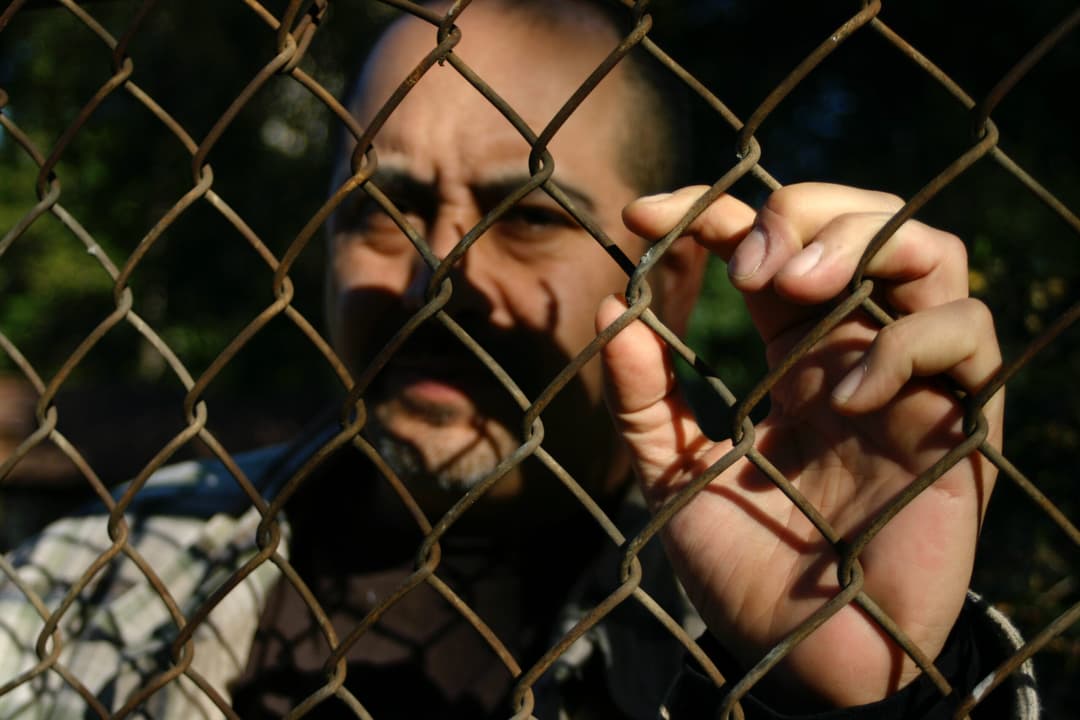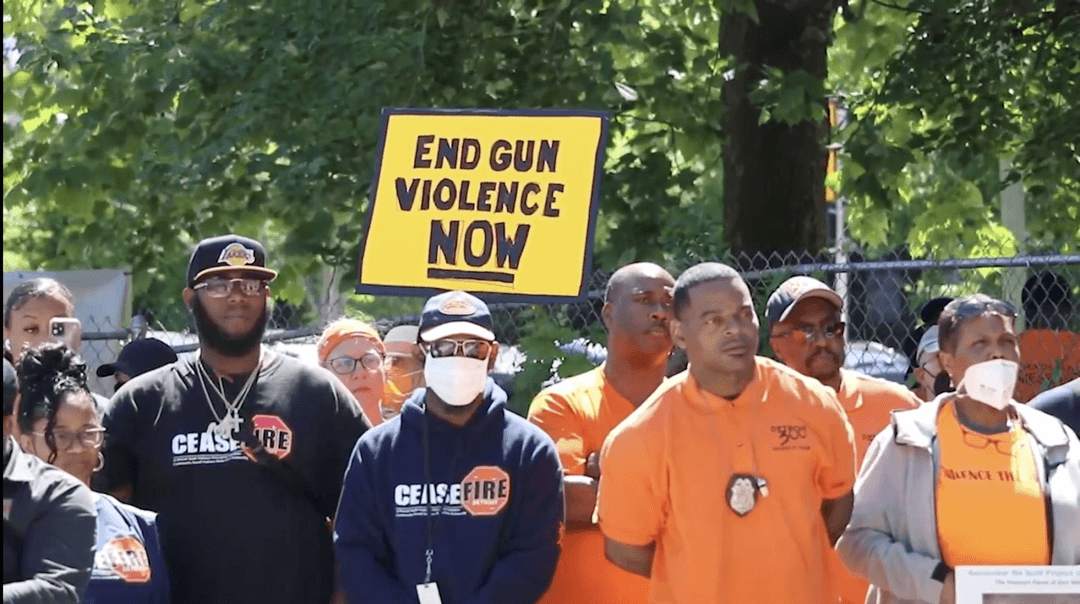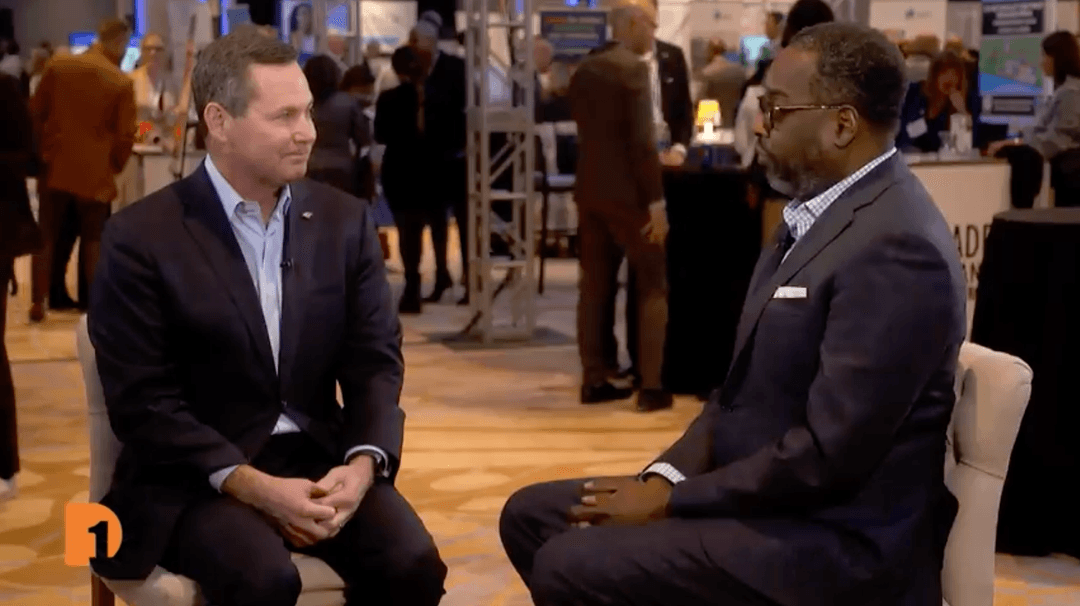Detroit Filmmaker’s ‘Asbury Park’ Tells the Story of Inner City Struggles
Mar 8, 2021
Originally posted on March 8, 2021. Updated on April 18, 2022.
Asbury Park is more than just a street on Detroit’s west side. It’s also the title of a new movie created by Detroit-based filmmaker Ken “Legend” Williams, who grew up on the inner-city street himself. Williams drew inspiration for his “Asbury Park” film from the real struggles he faced as a child in Detroit, and wanted to show the struggles today’s inner-city children live with through their perspective.
American Black Journal host and One Detroit contributor Stephen Henderson sat down with Williams to discuss the prevalent issues today’s inner-city children face — police brutality, mental health, etc. — and how Williams believes parents should address these issues with their children. For those living outside of the environments, Williams’ “Asbury Park” film depicts, he hopes his films make them curious enough to understand and help create change.
Watch Now:
[et_pb_video src=”https://www.youtube.com/watch?v=Uv73jUQVZKw” _builder_version=”4.17.0″ _module_preset=”default” global_colors_info=”{}”]
Full Transcript:
Speaker 1: Let me ask you a question? What’s the first thought that goes through your mind when the police rose up on you?
Speaker 2: Where you running, huh?
Speaker 3: Yeah. So.
Speaker 4: I hope I don’t get a ticket.
Speaker 1: I hope that I make it home alive.
Speaker 5: Quite frankly, I was in fear for my life. The suspect was not compliant with our orders and was just obstructing our investigation.
Speaker 6: So 64 funerals or…
Speaker 7: The Civil Rights Act only resulted because of a nation of African-Americans coming together and taking the stand.
Speaker 8: You people think it’s okay to break the law?
Stephen Henderson: Those of us who are from Detroit or live in the area know that Asbury Park is a street on the west side and is now the title of your film, but it’s also where you’re from. Is that right?
Ken “Legend” Williams, Writer/Director, Asbury Park: Yes.
Stephen Henderson: Yeah.
Ken “Legend” Williams: I grew up on Asbury Park Street, right off Seven Mile.
Stephen Henderson: So talk about the inspiration for this film and the street that you grew up on. The experiences that you had there.
Ken “Legend” Williams: The biggest thing behind this film is survival. You know, like I said, each of the kids, they have their own different things that they’re going through and dealing with. And I thought it would be interesting to see this from a kid’s perspective. You know, there are so many things that are going on in the world right now with police brutality, mental health awareness, you know, just a lot of different things.
Ken “Legend” Williams: And as adults, we have a hard time grasping our heads around it. And you know, and dealing with it. So to be able to see this from a kid’s perspective, I think is necessary, you know, because I’m a parent and I know, you know, as I watch the news and see the things that are going on, I know how I’m trying to deal with it, gravitate to it.
Ken “Legend” Williams: And I think just as a community, we just have to do a better job of, you know, actually checking to see what’s going on with our kids, to see how they’re dealing with it, to see what they think about it. Because I think if we did that, I think we’ll really be blown away by some of the responses that we get because they’re not stupid. They see what’s going on.
Stephen Henderson: Talk about the differences between what maybe you experienced as a kid growing up in that area and what your characters in the movie experience. Is there a big difference? Or.
Ken “Legend” Williams: To be honest, it’s a direct reflection of what I experienced as a kid. I grew up in a single parent home. My father left when I was six years old. And when that happened, I was no longer able to be a six year old. I had to start moving always. You know, the running joke is when I was six, I was actually 16 because the level of responsibility, you know, shifted.
Ken “Legend” Williams: And I wouldn’t no longer able to be a carefree kid to just sit back and say, hey, you know, everything is okay. There were certain things that I did to try to protect the house. You know, I was the kid who I’ll pull out the toolbox and something needed to get fixed. You know, I’m doing that now.
Ken “Legend” Williams: I’m checking, I’m checking out the windows at night and looking out to make sure you know that my mom is protected and things like that. So I took on a much older persona than I actually was due to my circumstances. And the reality is that’s not uncommon. The drug dealing and the shooting, yeah, that happens. But I feel like this portion of it is often missed. Everybody is often, you know, trying to be tough and things like this.
Ken “Legend” Williams: But what’s often missed in those films is the vulnerability. I think one of my biggest motivations behind this film is my youngest son. I looked at him one day and I laugh and I was like, man, you’re like, really a 10-year-old. Because when I was 10, I had responsibility, I had, you know what I mean? It was just a totally different animal. And to see him just be carefree. I wasn’t able to be carefree as a kid.
Stephen Henderson: So I wonder what message you think people who aren’t from Detroit and who may not know anything about Asbury Park the street might take away from this might take away from this film. I’m always curious about how we project to everybody else from the city.
Ken “Legend” Williams: Asbury Park isn’t even necessarily a Detroit story. It actually takes place in the fictitious world of the inner city, you know, because while it is relevant in Detroit, it’s also relevant in Baltimore and St. Louis, and you know, just all over the country.
Ken “Legend” Williams: But I think oftentimes like when you’re going through things because you’re dealing with it in real time, you don’t stop and think, hey, somebody is dealing with it over here or someone dealing with it over there. So for me, you know, like I said, it is much bigger. And honestly, my goal is my hope is that, people that are not from that environment we’ll take a look and start asking questions because I feel like that’s how you evoke change.
Speaker 9: Here, it’s just a fight to breathe.
Subscribe to One Detroit’s YouTube Channel & Don’t miss One Detroit Mondays and Thursdays at 7:30 p.m. on Detroit PBS, WTVS-Channel 56.
Catch the daily conversations on our website, Facebook, Twitter @DPTVOneDetroit, and Instagram @One.Detroit
View Past Episodes >
Watch One Detroit every Monday and Thursday at 7:30 p.m. ET on Detroit Public TV on Detroit Public TV, WTVS-Channel 56.
Stay Connected
Subscribe to Detroit PBS YouTube Channel & Don’t miss American Black Journal on Tuesday at 7:30 p.m. and Sunday at 9:30 a.m. on Detroit PBS, WTVS-Channel 56.
Catch the daily conversations on our website, Facebook, Twitter, and Instagram @amblackjournal.
Related Posts
Leave a Reply
Your email address will not be published. Required fields are marked*
